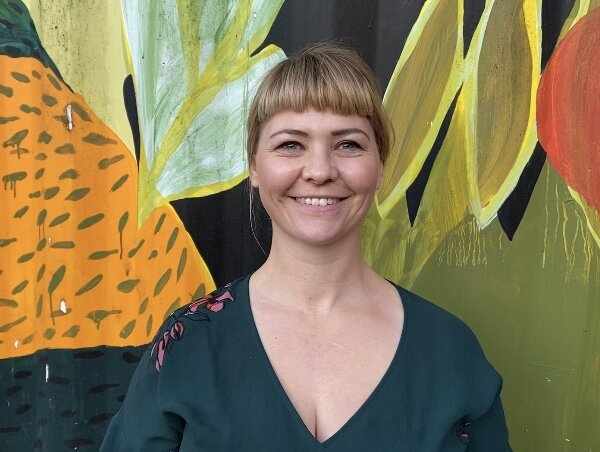Plant-based Foods Gain Momentum During Pandemic, and Vancouver’s Spread’Em Kitchen Leads the Way
The plant-based food industry is booming, reaching $5 billion in the US in 2019, up 29% over the last two years. While the effects of the global pandemic have had a significant strain on supermarket stock levels, this has done nothing to slow down the plant-based food industry. With fear of consequences of meat consumption rising and consumers looking for more and more ways to stay healthy, plant-based food brands are continuing to be in high demand.
Canadian Google searches for all things vegan increased by 113% since 2016, and are up 25.73% in the last year alone, according to recent research conducted by SEMrush, . Vegan cheese in particular takes the top spot with 5,317 average monthly searches.
Mellisa Mills, Founder of nut-based cheeze and dips company, Spread’Em Kitchen, has gone from stacking the shelves at Whole Foods, to having her product fly off those same shelves. Since launching the brand in 2015, Spread'Em Kitchen has seen an impressive business growth of 900%, starting out making just $128,000 in sales in the first year, to $2 million last year. Demand for her products, which are stocked in Whole Foods, Save-on-Foods and more, has continued to grow this year, despite world events.
Here, Mellisa takes us back to the humble beginnings of her company and we chat all things plant-based.
How did Spread’Em Kitchen get started? When did you launch and what was the initial mantra for the company?
After working as a graphic designer for many years, I felt like my working life was lacking in purpose and connection to people, so in 2014 I decided to leave my job. I didn’t have a particular business in mind at the time, instead I worked a few different jobs, including stacking shelves at Whole Foods, to save money to travel around the world. On a trip to Australia, I tried a beet dip for the first time, and I was hooked! I decided to try making it myself when I got home to Vancouver. I started to get a bit creative with the dips and spreads I was making and thought I could maybe sell them at the local farmer’s market. That’s where things really took off. They were a huge hit within the local community, and I began selling them to suppliers across Vancouver. I was a one woman show, blending hundreds of dips at home in my little blender, cutting and designing my own labels, and then delivering them across the city on my cargo bike.
Since launching the business in 2015, Spread’Em Kitchen has continued to grow, and I’m so proud to say that my plant-based dips, spreads and cheeses are stocked in grocery stores across the country. Luckily, I don’t have to deliver products to my suppliers on my cargo bike anymore! Spread’Em Kitchen’s mission is to connect with people through food and do as much good as possible, by creating experiences where passion and purpose come together.
What has changed for you since the early days?
Being stocked in major retailers across the country has really opened our products up to a range of customers. I find that while our products are plant-based, they appeal to a range of people with different dietary needs, whether you’re dairy-free, gluten-free, etc. Because our products are good for you, made with all whole ingredients, and are fermented with live cultures, which is good for the gut, anyone can try them, whether they are plant-based or not. It’s super interesting to see how diverse our customers are, because the products appeal to a lot of people.
Why do you think the plant-based food industry has boomed at the pace it has in the last couple of years?
I find that people are more interested in exactly what they are putting into their body and making sure it is nutritious and healthy. It’s also about people being more aware of the effect we’re having on the planet. People are much more interested in sustainability and being eco-friendly than they’ve ever been, and plant-based food is a really important part of this message.
How does plant-based food help reduce the environmental footprint?
Products that are created from plants require much less energy to produce. Our products are made from a base of cashews, a cashew tree only requires rainwater to grow and can live for around 50 years— this is far more sustainable than dairy cows. Reducing our environmental impact is an important part of our business, so we go that step further in ensuring the ingredients we source are ethical and traceable.
Tell me about your packaging? How eco-friendly are they and what has changed since you first launched?
I’ve always had an interest in being eco-friendlier and have looked for ways to reduce waste. So when I started my business, I finally had the power to make decisions that can actually change things. Sustainability has always been at the forefront of my business. In terms of packaging, we offset the paper used in our packaging by donating a portion of profits to Tree Canada. I’m always looking for more ways to make our product eco-friendly, so we’ve been looking for the perfect plant plastic that safely composts and keeps our product fresh. We’ve finally found the perfect one and will be implementing this within the next few months.
Has consumer demand increased since COVID?
With more people cooking at home, we’ve seen a huge increase in demand from our suppliers since COVID-19 began. We’ve also found that people are generally trying to make healthier choices during this time and are cooking at home more. Our website also has tons of different recipes for people to try, and we are noticing people checking those out and trying to make their own creations at home.
What has been the most challenging aspect of your business since COVID? Are there any lessons you’d like to share about running a small business during a pandemic?
Running a small business is always a challenge, pandemic or not, but it’s important to remember why you started the business in the first place. Spread’Em Kitchen is a passion project, and that passion brings me the drive to make my business succeed, no matter what.
What are you most looking forward to doing once we get back to normal?
I think I can relate to everyone when I say that I’m most looking forward to spending some time with my friends and extended family. But I do think that when we return to normal, it’s important to look back on the things we’ve learned during this time - and I hope that people continue to make healthier choices for themselves and the planet.




